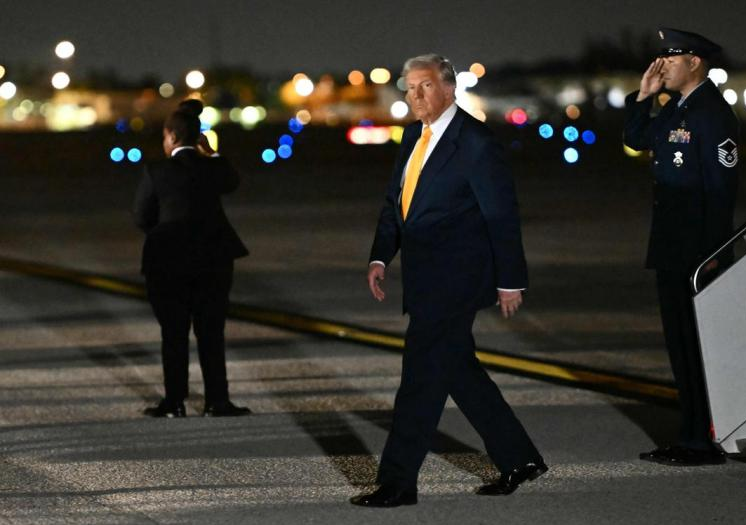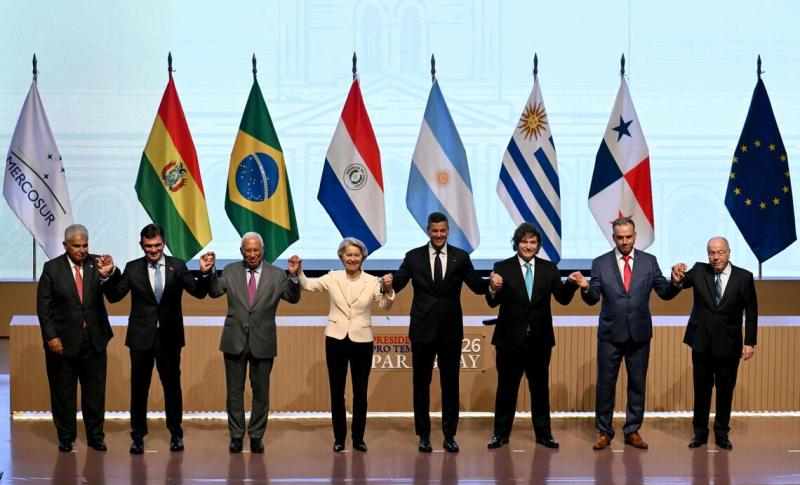
U.S. President Donald Trump has suggested that the exemption from tariffs on electronics such as smartphones and computers is temporary and that he will impose new tariffs on memory chips for those products and other technologies.
Comprehensive "New York Times" and Bloomberg reported that Trump posted on the Social media platform Truth Social on Sunday (April 13) that the US government is studying the imposition of tariffs on the entire electronics supply chain, and promised to conduct a national security trade investigation of the semiconductor industry.
"These products are still currently subject to a 20% tariff due to the fentanyl problem, they are simply being moved to another tariff category," Trump wrote.
"No one is' off the hook 'for unfair trade practices and non-monetary tariff barriers imposed on us by other countries, especially China, which treats us the worst!"
On the same day, several key members of Trump also said that exempting certain products such as smartphones, computers, semiconductor manufacturing equipment and integrated circuits from reciprocal tariffs is a temporary measure.
In an interview Sunday with ABC News, Commerce Secretary Robert Lutnick said smartphones, computers and other electronic devices would be covered by the upcoming tariffs on semiconductors.
This means that the United States excluded a range of electronic products from the 125 percent tariff imposed on China and the uniform 10 percent tariff applied globally as a temporary measure.
Lutnick reiterated that imposing a different set of specific taxes on the industry is Trump's long-term plan.
Lutnick said: "These products will all be put into the semiconductor category, and we will have a special focused tariff for this industry to ensure that these products come back to the United States." We cannot rely on China for our basic needs."
Hassett, director of the White House National Economic Council, mentioned in an interview with CNN's State of the Union program on the same day that some high-tech imports were listed as separate items of taxation, "which has always been the case."
"It should come as no surprise that semiconductors are an important part of many defense devices," he said.
Trump announced on April 12 that he would exempt some products from reciprocal tariffs such as computers, smartphones, semiconductor manufacturing equipment and integrated circuits. The waiver is big news for American technology companies such as Apple Inc. and Dell Technologies Inc., which rely on Chinese imports.
China's Ministry of Commerce responded in the form of a spokesman on the official website on the 13th, saying that this is the second adjustment to relevant policies since the United States suspended the imposition of high reciprocal tariffs on some trading partners on April 10. "It should be said that this is a small step by the US side to correct the wrong practice of unilateral reciprocal tariffs."

The European Union and the Southern Common Market signed a free trade agreement in Asunción on Saturday (January 17th).
The European Union and the Southern Common Market signed a …
Tokyo Disneyland is no longer considered "dreamlike" in the…
Iran's Supreme Leader Ayatollah Ali Khamenei has for the fi…
EU diplomats said that at the emergency meeting on Sunday (…
US Treasury Secretary Bessonnet said that Europe's "weaknes…
According to a recent report by Rich Asplund, a columnist f…